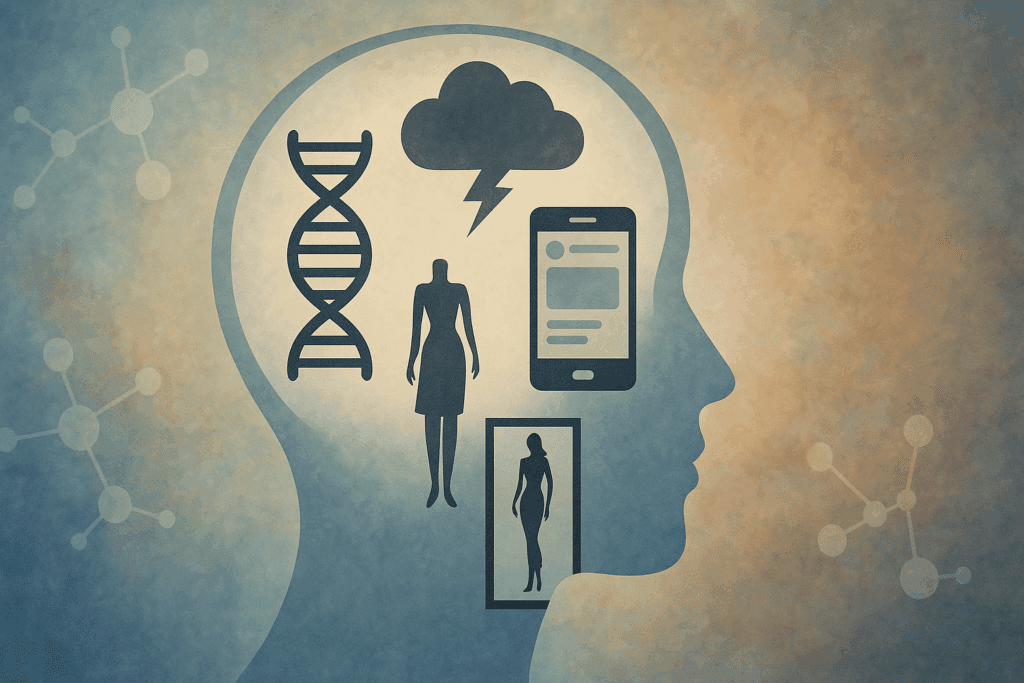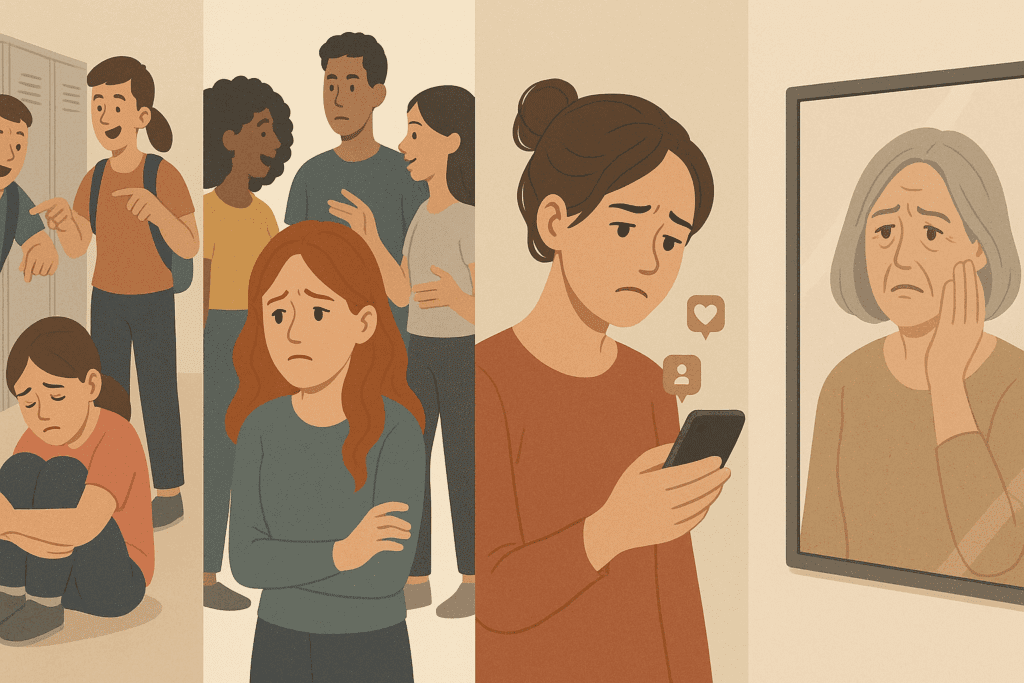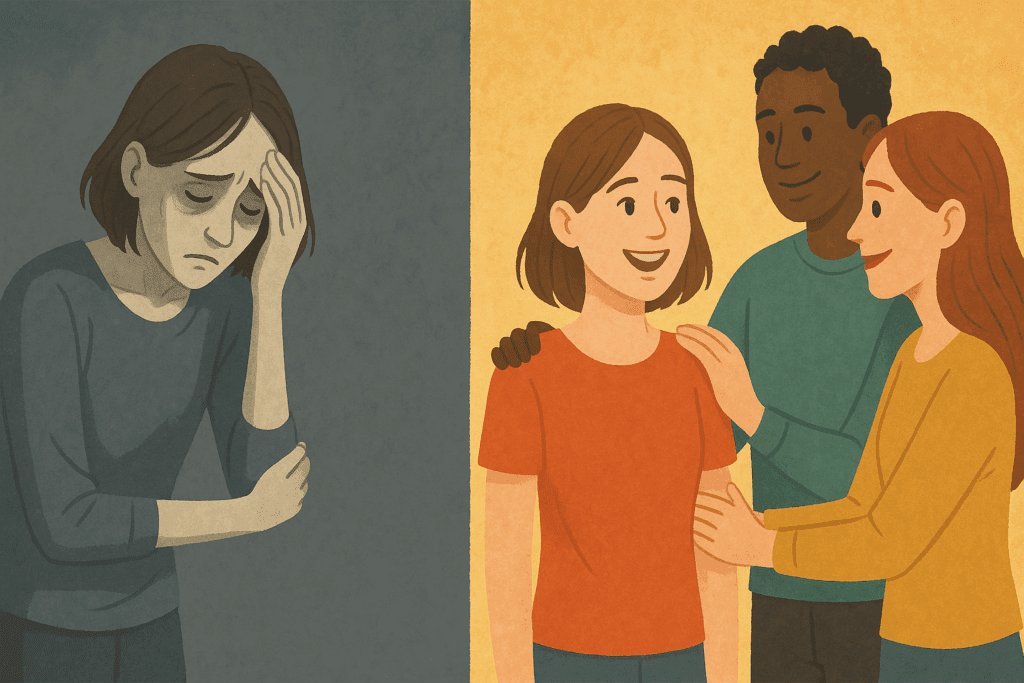Understanding the Role of Mindful Nutrition in Preventing Eating Disorders
Mindful nutrition, a practice rooted in awareness and intentionality, has gained recognition as a powerful strategy for improving eating habits and fostering a healthy relationship with food. At its core, mindful eating encourages individuals to be present during meals, acknowledging physical hunger cues, emotional triggers, and the sensory experience of eating. This approach stands in stark contrast to disordered eating patterns, which often involve restriction, bingeing, guilt, and a loss of connection with bodily needs. For those seeking to understand how to prevent eating disorders, embracing mindful nutrition can be an essential first step. Rather than promoting rigid dietary rules, it emphasizes flexibility, compassion, and self-care.
You may also like: How to Stop Emotional Eating and Regain Control: Mindful Nutrition Strategies That Support a Healthier Lifestyle
Incorporating mindful eating practices can help individuals recognize the early warning signs of disordered behaviors. For instance, noticing when one eats in response to stress or emotional discomfort rather than hunger can provide an opportunity to redirect toward healthier coping strategies. Furthermore, cultivating mindfulness around food reduces the internalization of harmful diet culture messages, which are among the key risk factors for eating disorders. Through this lens, mindful nutrition does not merely involve what we eat but how we relate to food. Developing this relationship with intention can strengthen self-awareness, self-regulation, and overall psychological resilience.

Exploring the Etiology of Eating Disorders: What Science Tells Us
Understanding the etiology of eating disorders involves examining a complex interplay of genetic, psychological, sociocultural, and environmental influences. While there is no singular cause, research has consistently shown that individuals with a family history of mental health conditions or disordered eating are at increased risk. Personality traits such as perfectionism, low self-esteem, and impulsivity can also play a role in the development of disordered eating behaviors. Additionally, chronic stress, trauma, and societal pressure to achieve unrealistic body ideals further contribute to the psychological burden that may lead someone toward an eating disorder.
Sociocultural factors are particularly influential, especially in environments where thinness is equated with health, beauty, or success. Adolescents and young adults are especially vulnerable, as they are frequently exposed to idealized body types through social media and advertising. These influences can distort body image and fuel unhealthy dieting practices, creating fertile ground for disordered eating to take root. To effectively address why people have eating disorders, it is essential to consider how these external pressures intersect with internal vulnerabilities. In clinical settings, identifying and addressing these underlying causes is central to treatment, but from a preventative standpoint, public health education about the etiology of eating disorders can equip individuals with the knowledge needed to resist harmful norms and expectations.

Why Do People Have Eating Disorders? Unpacking Emotional and Psychological Triggers
In addition to genetic and cultural influences, emotional and psychological factors significantly contribute to why people have eating disorders. For many, disordered eating behaviors serve as maladaptive coping mechanisms for managing intense emotions such as anxiety, depression, loneliness, or a sense of inadequacy. In these instances, food becomes a way to exert control in an otherwise unpredictable world. The behavior may begin innocently enough—perhaps as a diet or an attempt to “eat healthier”—but can quickly escalate into patterns that are difficult to break. Understanding how emotional pain translates into physical self-regulation is critical in preventing the spiral into full-blown eating disorders.
Moreover, the internalization of societal ideals related to thinness and success can distort self-perception. Individuals may come to believe that their worth is dependent on achieving a certain body size or shape, creating a toxic feedback loop of dieting, restriction, and self-criticism. The effects of eating disorders on one’s emotional health are profound. Individuals often experience shame, guilt, and isolation, which only reinforce the disorder’s hold. Addressing these psychological factors early—through therapy, peer support, or educational initiatives—can prevent the entrenchment of harmful beliefs and behaviors. Encouraging a culture of self-compassion, emotional literacy, and psychological flexibility is essential to long-term prevention.
Identifying the Risk Factors for Eating Disorders Across Age Groups
When assessing risk factors for eating disorders, it is important to recognize that these can vary significantly across different life stages. Among children and adolescents, bullying, peer pressure, and early exposure to diet culture can lay the foundation for unhealthy eating patterns. In young adults, the transition to college or independent living often introduces new stressors and body image concerns. Meanwhile, adults may struggle with weight stigma, chronic dieting, or the psychological impact of major life changes such as pregnancy, aging, or career stress.
Additionally, athletes—particularly those in sports that emphasize leanness or weight classes—face a heightened risk. Social identity and marginalized status also play a role, with LGBTQ+ individuals and people of color experiencing unique pressures and barriers to care. To prevent eating disorders effectively, early identification of risk factors is key. Interventions should be tailored to the unique needs and life circumstances of each individual. Educators, parents, coaches, and healthcare providers all have a role to play in recognizing warning signs and fostering protective environments that emphasize well-being over appearance.

The Effects and Consequences of Eating Disorders on Physical and Mental Health
The effects of eating disorders extend far beyond food and body image—they have profound implications for both physical and mental health. From a physiological perspective, prolonged restriction or purging can lead to nutrient deficiencies, electrolyte imbalances, cardiac issues, gastrointestinal distress, and weakened immune function. In severe cases, eating disorders can be life-threatening, underscoring the importance of early intervention. The consequences of eating disorders are not limited to the body, however. Psychologically, individuals may suffer from chronic anxiety, depression, obsessive thoughts, and impaired cognitive function.
Social and emotional health also deteriorate under the weight of eating disorders. Relationships may become strained due to secrecy, irritability, or social withdrawal. Academic and occupational performance may decline as the disorder consumes one’s attention and energy. The mental health burden of eating disorders is particularly heavy, as individuals often feel trapped in cycles of guilt, shame, and fear. Addressing the effects of eating disorders in a holistic manner—incorporating medical, nutritional, and psychological care—is critical to recovery. Equally important is prevention through education and empowerment, which can help individuals avoid these devastating outcomes.
How Does Not Eating Affect Yourself Love and Self-Perception?
The relationship between nourishment and self-worth is more profound than many realize. When individuals engage in restrictive eating, they often begin to associate deprivation with discipline, control, or even virtue. This mindset may initially appear empowering, but over time it erodes one’s sense of self-love and self-compassion. How does not eating affect yourself love? It often diminishes it. Restrictive behaviors can lead to a distorted body image, negative self-talk, and a constant sense of not being “good enough.”
Furthermore, the act of denying one’s basic needs sends a powerful psychological message: that one’s body does not deserve care or kindness. This internalized message can be deeply damaging, particularly when reinforced over time. Cultivating self-love requires recognizing that our bodies deserve nourishment, not punishment. Mindful nutrition encourages this recognition by fostering gratitude for the body’s capabilities and emphasizing eating as an act of self-respect. Rebuilding self-worth through mindful eating involves shifting from judgment to curiosity, from criticism to compassion. In this way, the path to self-love begins with the simple yet radical act of feeding oneself with care and intention.

How Do You Start an Eating Disorder? Recognizing Early Warning Signs
While the phrasing “how do you start an eating disorder” may sound jarring, it reflects a real concern: many individuals do not recognize the early stages of disordered eating until the behaviors are deeply ingrained. Eating disorders often begin subtly—with a skipped meal, a restrictive diet, or an obsessive focus on “clean eating.” These actions may be socially reinforced, making them seem harmless or even admirable. However, over time, these habits can escalate into patterns that meet clinical criteria for disorders such as anorexia nervosa, bulimia nervosa, or binge eating disorder.
Key warning signs include frequent dieting, rigid food rules, body checking, preoccupation with weight, and guilt after eating. Emotional cues are just as important: increased anxiety around meals, social withdrawal, and mood swings can all signal deeper issues. Recognizing these patterns early is essential to preventing escalation. Healthcare professionals, educators, and families must create open spaces where concerns about food and body image can be discussed without judgment. Education on how to develop an eating disorder unintentionally can empower individuals to interrupt these patterns before they become entrenched. Prevention is most effective when it begins with awareness and is grounded in compassion.

Describe Compi Sove Eating Disorder Simple: Understanding Misunderstood Terms and Clarifying Language
In the ongoing conversation around eating disorders, clarity in language is vital. The phrase “describe compi sove eating disorder simple” appears to be a misconstructed or misspelled version of a commonly searched query. Interpreted contextually, it may reflect a desire to understand or describe complex eating disorder concepts in simple, accessible terms. This need highlights a broader issue: medical and psychological terminology can often feel inaccessible, making it difficult for individuals to identify or seek help for their struggles.
Simplifying complex terminology does not mean reducing its importance but rather translating it into everyday language. For example, instead of describing anorexia as a “restrictive food intake disorder characterized by fear of weight gain,” one might say, “an illness where people feel afraid to eat and try to lose weight even when they’re already underweight.” This kind of accessibility fosters understanding and reduces stigma. As part of how to prevent eating disorders, simplifying language allows for more inclusive conversations and early intervention. Education, especially in schools and community settings, should prioritize both accuracy and approachability to ensure that all individuals can recognize the signs and seek support.

How to Develop an Eating Disorder: Exploring the Slippery Slope of Diet Culture
It is a disturbing reality that many eating disorders begin not in clinical settings but in the ordinary act of dieting. The question of how to develop an eating disorder is tragically answered in everyday behaviors encouraged by society: skipping meals, categorizing foods as “good” or “bad,” idolizing thinness, and equating weight loss with success. These patterns, while socially normalized, are dangerous. Over time, they can erode healthy behaviors and replace them with compulsive, punitive practices that are difficult to reverse.
Diet culture reinforces the idea that our worth is tied to our appearance and that extreme measures are justified in the pursuit of thinness. As these messages accumulate, individuals may begin to engage in more restrictive or compensatory behaviors, setting the stage for disordered eating. Recognizing this slippery slope is essential in the effort to prevent eating disorders. Promoting body diversity, intuitive eating, and weight-neutral health care are practical steps toward dismantling the systems that perpetuate harm. Awareness of how common dieting behaviors contribute to the development of eating disorders empowers individuals to make informed, compassionate choices for their well-being.
Frequently Asked Questions: Preventing Eating Disorders Through Mindful Nutrition
What role does stress management play in how to prevent eating disorders?
Stress is often a silent driver behind disordered eating behaviors, and learning to manage stress effectively is a key component in understanding how to prevent eating disorders. When individuals are overwhelmed by academic pressure, work demands, or social expectations, they may seek control through food restriction or emotional eating. Chronic stress can disrupt appetite-regulating hormones like cortisol and ghrelin, leading to cycles of bingeing or restrictive behaviors. Integrating mindfulness practices, regular physical activity, and creative outlets such as art or journaling can support emotional regulation. These strategies provide healthier ways to respond to stress, ultimately reducing the risk factors for eating disorders linked to chronic emotional strain.
How does not eating affect yourself love and body confidence over time?
Many people underestimate how deeply nutrition affects emotional self-worth. How does not eating affect yourself love? Over time, chronic undernourishment can send a subconscious message that one’s needs are unworthy of being met. This behavior is often mistaken for self-discipline, when in reality it gradually erodes self-compassion and confidence. When you continually ignore hunger cues or restrict eating to achieve external ideals, the relationship with your body becomes adversarial rather than supportive. Over the long term, this disconnection can make it much harder to engage in practices that support healing and self-love, reinforcing the psychological consequences of eating disorders.
Why do people have eating disorders even when they seem outwardly healthy or successful?
One of the lesser-known reasons eating disorders are often overlooked is because individuals who appear high-functioning may still be struggling internally. Why do people have eating disorders despite seeming stable? Eating disorders are not always visible or associated with being underweight. Many people hide their struggles due to stigma, shame, or a desire to maintain appearances. These individuals may meet social and professional expectations while secretly battling disordered thoughts or behaviors. This invisibility adds complexity to the etiology of eating disorders and highlights the importance of shifting focus from appearance-based judgments to a deeper understanding of psychological distress and behavioral patterns.
What are some overlooked social factors that contribute to the risk factors for eating disorders?
While media influence and body image are well-known contributors, there are more subtle societal dynamics that shape the risk factors for eating disorders. For example, economic instability can lead to food insecurity, which may trigger hoarding, bingeing, or restrictive behaviors. Cultural norms around gender roles, especially expectations placed on women and marginalized communities, can also increase vulnerability. Social isolation, lack of representation in wellness discourse, and microaggressions about appearance all play a part. These layered experiences add nuance to the reasons eating disorder patterns develop in individuals who may already be at risk. Recognizing these broader influences helps create more inclusive and effective prevention strategies.
Can you describe compi sove eating disorder simple in a way that clarifies common confusion?
Although the phrase “describe compi sove eating disorder simple” is likely a miswritten search term, it reflects a real desire to understand complex disorders in accessible terms. Simply put, eating disorders often involve an intense focus on food, weight, or body shape that leads to unhealthy behaviors like starvation, purging, or obsessive exercising. What makes it complicated is the emotional and psychological depth beneath these behaviors. People may use food to manage emotions, express distress, or cope with trauma. To describe compi sove eating disorder simple, one must consider the emotional function the disorder serves, rather than focusing only on food habits or physical appearance.
How do you start an eating disorder unintentionally, and what are the first signs to look for?
Most individuals don’t set out to develop an eating disorder. So how do you start an eating disorder without realizing it? Often, it begins with socially accepted habits like dieting, intermittent fasting, or eliminating entire food groups under the guise of “clean eating.” These practices may feel empowering at first but can evolve into rigid, compulsive behaviors. Early warning signs include obsessively reading food labels, anxiety about meals, and feeling guilty after eating. These seemingly minor behaviors can gradually deepen, making it essential to intervene early to prevent the psychological consequences of eating disorders from becoming entrenched.
What are the long-term consequences of eating disorders beyond physical health?
While much attention is given to the physical effects of eating disorders—such as weakened bones, heart complications, and fertility issues—the long-term psychological and social consequences of eating disorders are equally significant. Many individuals struggle with trust issues, difficulty forming relationships, and a pervasive sense of shame even after physical recovery. Cognitive impairments such as trouble concentrating or memory lapses can persist, especially in those with a prolonged history of malnourishment. The disruption of academic or career paths due to the disorder also has lasting repercussions. These broader effects underscore the importance of early intervention and continued psychological support during recovery.
How does the etiology of eating disorders differ among genders and sexual orientations?
The etiology of eating disorders is not uniform across populations. Among men, symptoms are often underdiagnosed because eating disorders are incorrectly seen as a “female issue.” Men may be more likely to engage in excessive exercise or muscle-building rather than food restriction alone, which can obscure diagnosis. LGBTQ+ individuals, especially transgender youth, face unique pressures related to body dysphoria, social rejection, and lack of access to affirming healthcare. These factors that cause eating disorders in these populations require culturally competent care and awareness from healthcare professionals. Tailoring prevention and treatment to these nuances can enhance outcomes and promote equity in mental health support.
Can digital culture and technology affect how to develop an eating disorder?
In today’s digital world, social media algorithms often reinforce body ideals that contribute to disordered thinking. Learning how to develop an eating disorder today, in part, involves exposure to “fitspo” content, diet hacks, and comparison-driven environments. Online forums, while helpful for some, can also enable competitive or triggering discussions about weight loss and fasting. The anonymity of digital platforms makes it easier for harmful advice to spread unchecked. Incorporating digital literacy into prevention efforts—helping users critically evaluate content—can be a powerful strategy for reducing the risk factors for eating disorders rooted in online environments.
What role do family dynamics play in the reasons eating disorder patterns form early in life?
Family environments can greatly shape one’s relationship with food and body image. For some, the reasons eating disorder behaviors begin stem from early exposure to dieting language, weight-related teasing, or overemphasis on appearance within the home. Children absorb these messages and may internalize them as indicators of worth. A lack of emotional expression or validation can also lead children to use food as a coping mechanism. Preventing disordered patterns starts with encouraging open dialogue, modeling balanced eating behaviors, and creating safe spaces for emotional communication. Understanding these early influences is essential to identifying how to prevent eating disorders in future generations.
Conclusion: Building a Healthier Relationship with Food Through Awareness and Action
Preventing eating disorders requires more than awareness—it demands a cultural shift in how we approach food, body image, and self-worth. Through the lens of mindful nutrition, individuals can cultivate a relationship with food that is grounded in presence, compassion, and self-respect. Understanding the risk factors for eating disorders and the complex etiology of these conditions helps us intervene before habits become harmful. Recognizing the emotional roots of disordered eating—how does not eating affect yourself love, for instance—highlights the need for holistic, emotionally intelligent approaches to care and prevention.
By exploring the reasons eating disorders develop and confronting harmful societal norms, we gain the tools to foster resilience and reduce stigma. Simplifying language, sharing knowledge, and creating inclusive environments can make a tangible difference in early intervention. Whether addressing how to develop an eating disorder unintentionally or exploring the effects of eating disorders on the mind and body, education is key. Ultimately, by nurturing mindful, compassionate practices around food, we not only prevent harm—we support lifelong wellness grounded in dignity and respect.
Was this article helpful? Don’t let it stop with you. Share it right now with someone who needs to see it—whether it’s a friend, a colleague, or your whole network. And if staying ahead on this topic matters to you, subscribe to this publication for the most up-to-date information. You’ll get the latest insights delivered straight to you—no searching, no missing out.

